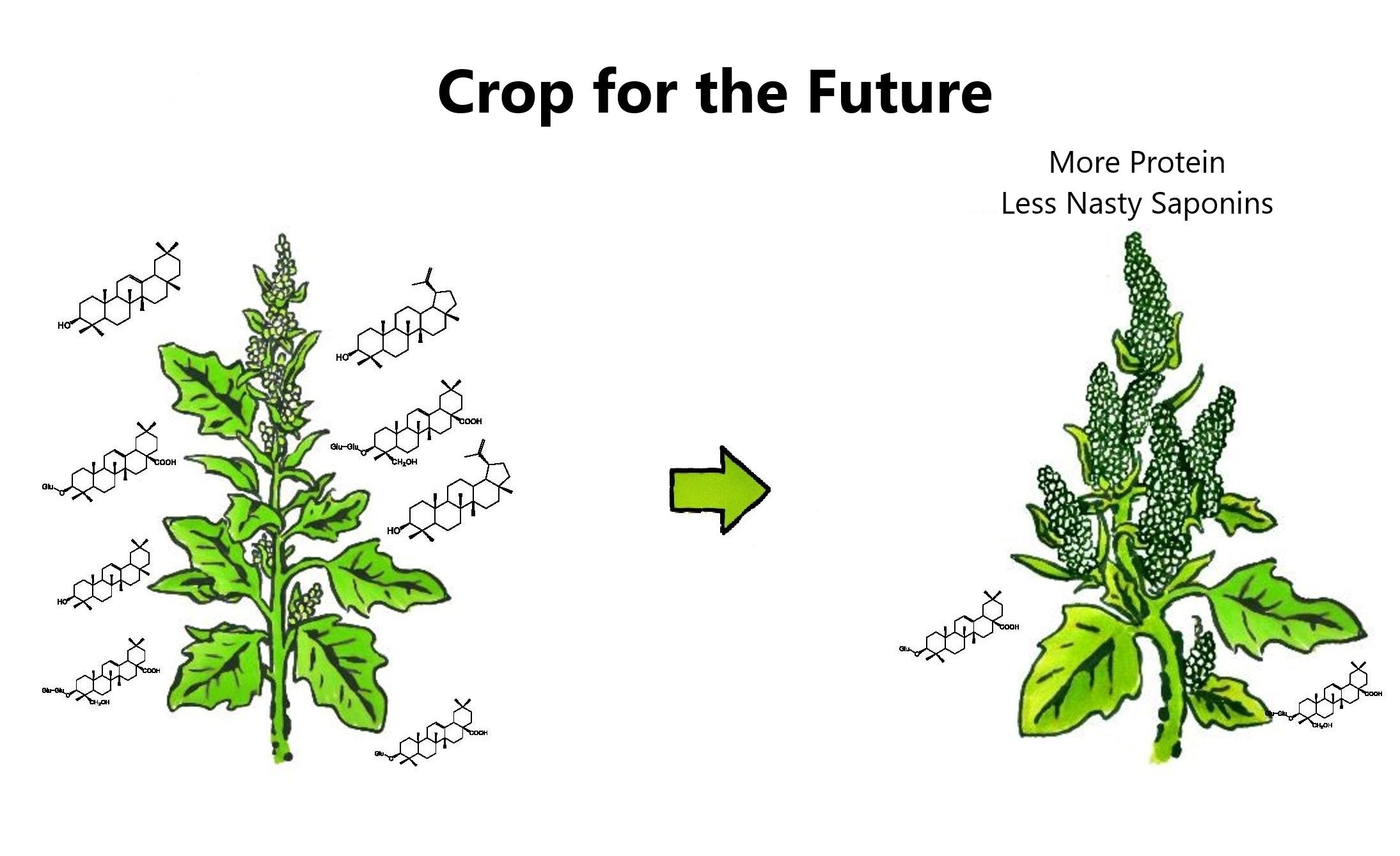Crop for the Future: Taming a neglected local weed as a crop for food security
Crop for the Future will develop Chenopodium album to be reintroduced in modern agriculture by:
Establishing the technological platforms to accelerate the domestication of C. album. Characterizing the nutritional and anti-nutritional value of C. album. Elucidating the regulation and biosynthesis of anti-nutritional saponins in C. album.

Funded by:

Project: Crop for the Future
Period: 01/01/2021 - 01/01/2024
Contact
Søren Bak
Professor
bak@plen.ku.dk
+4535333346
Katja Annette Willrodt
Project Manager
kwi@plen.ku.dk
+4535325828
THE CHALLENGE: We have to feed a growing population in a world with scarcity of land and water, over use of pesticides and fertilizers and climate emergency. Currently, just four crops (rice, wheat, maize and potato) out of 30.000 edible plants provide 60% of the world’s dietary energy intake. Our current food system is unnecessarily exposed and vulnerable to pests, diseases and climate change. Therefore, it is not enough to keep improving the current crops, but there is an urgent need to introduce new species to transition towards a more sustainable agriculture. New crops should 1)diversify our food system, 2)offer higher nutritional value and yields using fewer resources, 3) be more resilient to pests, diseases and climate change, and 4) be grown closer to the consumers to reduce the environmental impact of global transportation of food. Crop for the Future addresses these four major challenges.
A GREEN LOCAL SOLUTION: There are many wild and semi-domesticated plants with potential to be utilized as food crops. These plants are well adapted and thrive in local climate, and can be a unique and rich source of nutrients. However, many have anti-nutritional or unpleasant chemical compounds that harm their potential use as food and they are not suitable for large-scale agriculture because they have not been bred for traits of interest. Resolving these issues by traditional breeding is challenging due to the extended time required. Transgenic approaches are faster, but raise public concerns, limiting crop improvement.
This project has the potential of transforming a wild plant into a new sustainable food crop. In nature there are thousands of resilient plants with potential to be developed as new crops for future food security. However, many of them have anti-nutritional compounds and these need to be removed before we can use these plants for food and fodder. We hypothesize that, combining state- of-the-art technologies on speed breeding, gene editing, transcriptomics and metabolomics, it is possible to perform rapid domestication of wild plants. In the Crop for the Future project, we aim to develop a local Danish plant, Chenopodium album, as a potential nutritious food crop.
To achieve this, the objectives of the project are
- To establish the technological platforms to accelerate the domestication of C. album, using the novel Speed Breeding technology
- To characterize its nutritional and anti-nutritional value and
- To elucidate the regulation and biosynthesis of its Anti-nutritional saponins.
The following partners are involved in the project
- University of Copenhagen
- John Innes Centre
See below which individual researchers are involved
Participants
| Navn | Titel | Affiliation | |
|---|---|---|---|
| Søren Bak | Project Leader, Professor | University of Copenhagen | bak@plen.ku.dk |
| Pablo D. Cardenas | Assistant Professor | University of Copenhagen | pdcardenas@plen.ku.dk |
| Associate Professor | University of Copenhagen | tpha@plen.ku.dk | |
| Poul Erik Jensen | Professor | University of Copenhagen | |
| Brande Wulff | Professor, Group Leader | John Innes Institute | Brande.Wulff@jic.ac.uk |
